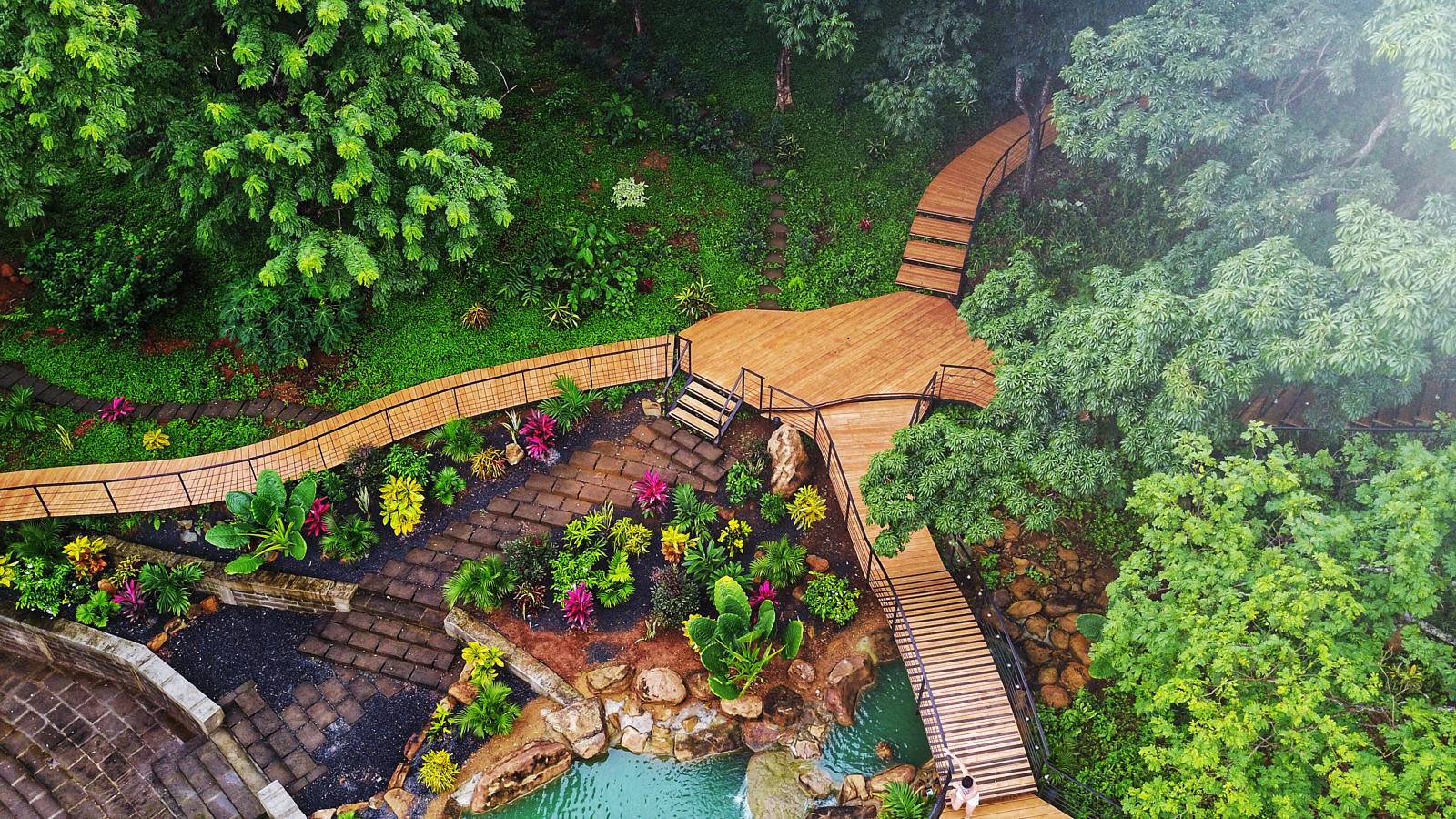Connective Practices
TreeCasa thrives with a firm understanding that any built environment is an inextricable part of a wider ecosystem. We take great care to honor this relationship in all we do—from landscape design to resource conservation, land stewardship and community health. Here are just a few ways we actualize our vision for a more sustainable world.
Sustainable Building
Sustainable Building



All structures on the property are built in the palapa thatch architectural tradition, dating back to the ancient civilizations of the Aztec, Inca and Maya. We use sustainable eco-friendly materials to reduce impact: native teak and bamboo poles, thatch roof woven from palm leaves—designed to shed water, create natural insulation and enhance airflow. We employ skilled builders from La Paz Centro, a nearby town specializing in this timeless tradition, to support a sustainable local economy.
TreeCasa was designed to resound nature’s elegant and profound architecture and built to honor the expansive 450-acre canvas of dynamic landscape, plants and animals in which it exists. We build in and with the land, not on top of it. Each element of TreeCasa was designed in relationship to place and intimate understanding of its characteristic soil, climate, wind and water flow through the different seasons.
Restoring Balance
Restoring Balance



Our naturalist pond aids sustainable water management and provides a habitat for our native turtle, fish and iguana friends. We consciously preserve natural habitats in trees and on ground for diverse species of monkeys, butterflies, birds, amphibians and more, while restoring native forest along 20 km of trails.
Agro Ecology
Agro Ecology



Organic agriculture integrated into the landscaping! You’ll find food forests growing throughout the entire property, highlighting biodynamic sources of food, beauty, materials and medicine. Guests have instant access to bananas, pineapples, papaya, guava, starfruit, chilies, herbs, superfoods like moringa and more—planted right outside the canopy suite doors and all along the walkways.
Resource Conservation
Resource Conservation


All structures are built to optimize light, airflow and natural cooling systems (we have A/C, but you won’t need it). We use LED lighting throughout, which is 80% more energy efficient than traditional lighting sources, and solar energy to handle much of our daytime electricity load.
Extending Resources
Extending Resources


Our water catchment systems capture grey water to grow bananas and other water-loving plants while preventing soil erosion. We collect all our organic garden, grounds and kitchen scraps to replenish the soil with the richest compost for growing. Our garbage and recycling program extends from TreeCasa to the wider community in environmental educational programs.
Water & Earth Friendly
Water & Earth Friendly



Special ozone filters and purifiers keep our pools clean and contaminant-free, minimizing the use of traditional treatment chemicals. We use earth-friendly, enzyme and plant-based biodegradable products and encourage our guest to do their part to help maintain a healthy ecosystem.
Restoring Relationships
Restoring Relationships



We grow organic food right on the grounds not only to provide our guests the freshest, most delicious seasonal goods, but also to highlight how a local food movement can reduce environmental impact while improving lives and health. Employing a mix of traditional Nicaraguan agriculture, cutting-edge California permaculture and regenerative agriculture techniques, we build healthy soil and robust ecosystems. We honor the legacy of native foods while introducing new plants and flavors to enhance local diet and nutrition. We also source all-natural meats, dairy, eggs, fresh-off-the-boat seafood and produce grown within a 10 km radius to support our local farmers and fishermen.
TreeCasa offers free garden tours and classes to the wider community to share organic gardening techniques and raise ecosystem awareness for food security and community health. We started a program with a local orphanage in Rivas so that kids can learn about how organic gardens can enhance health and resilience.
